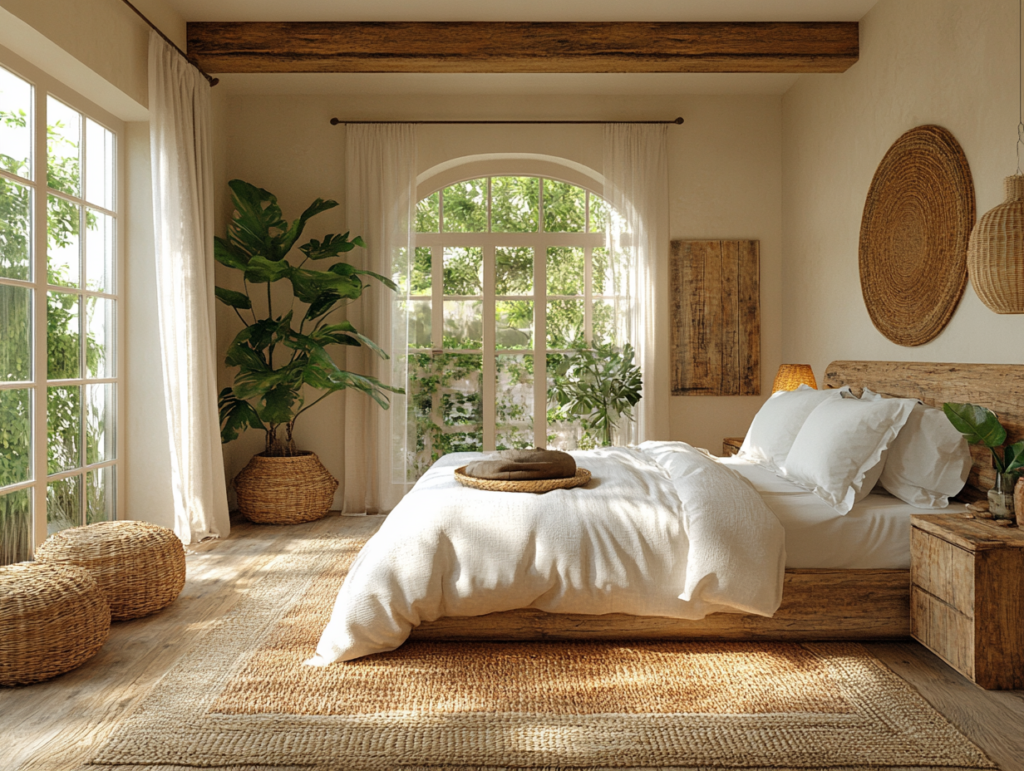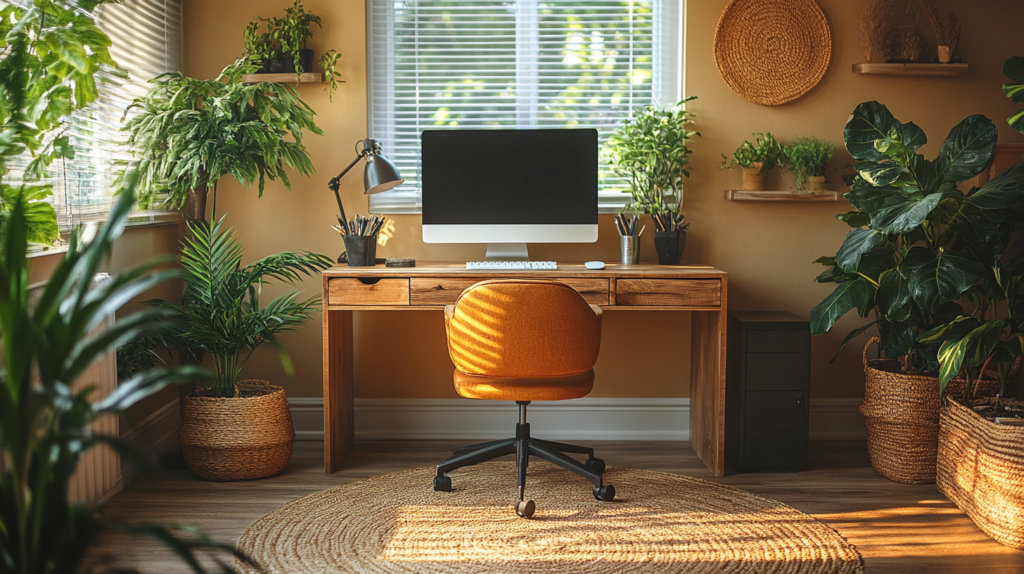In today’s fast-paced world, our homes should serve as a sanctuary for relaxation, wellness, and mindfulness. A well-designed Zen space can significantly enhance emotional balance, reduce stress, and foster a sense of well-being. By incorporating minimalist design, natural elements, and thoughtful organization, you can transform your home into a haven of peace and health. In this guide, we will explore how Zen principles can help create a healthy home that supports mindfulness and overall wellness.
The Importance of a Healthy Home
Your home environment directly affects your mental, physical, and emotional health. For instance, a cluttered and chaotic space contributes to stress and anxiety. On the other hand, a calm, organized, and nature-infused home fosters relaxation, focus, and happiness. Therefore, Zen design emphasizes simplicity, balance, and harmony, allowing you to create an environment that aligns with a healthy lifestyle.
Key Principles of Zen Home Design
1. Minimalism for Mental Clarity
A clutter-free home fosters a clutter-free mind. To achieve this, minimalist design focuses on removing unnecessary items while keeping only what brings joy and functionality. As a result, this decluttering process reduces stress, improves focus, and creates an open, peaceful space that encourages relaxation.
Furthermore, adopting a minimalist approach helps you prioritize what truly matters. Instead of being overwhelmed by excessive possessions, you can concentrate on maintaining a sense of serenity in your home.
2. Natural Elements for Wellness
Bringing nature indoors is a fundamental Zen principle that enhances wellness. To incorporate nature effectively, consider using:
- Indoor plants: These purify the air and add natural beauty.
- Wood and stone textures: They provide grounding energy and warmth.
- Water features: These promote tranquility and serenity, contributing to a peaceful atmosphere.
Additionally, incorporating natural elements not only enhances aesthetics but also creates a connection between your indoor space and the outdoors, which can be incredibly soothing.
3. Soft, Neutral Color Palette
Colors influence mood and mental state. For this reason, a Zen-inspired home typically features:
- Soft neutrals: Shades like beige, white, and gray create calmness.
- Earthy tones: Greens and browns help ground energy and connect the space with nature.
- Pastel shades: Light blues, pinks, and lavenders foster a serene atmosphere.
Moreover, using a neutral color palette provides versatility. Since these colors blend well with various decor styles, maintaining a cohesive look throughout your home becomes effortless.
4. Balanced Lighting for Harmony
Lighting plays a crucial role in maintaining mental well-being and regulating circadian rhythm. To achieve optimal lighting:
- Use sheer curtains to maximize natural light during the day.
- Incorporate warm LED lights in the evening for a cozy atmosphere.
- Avoid harsh fluorescent lights, as they can cause eye strain and disrupt relaxation.
Additionally, layering different light sources, such as table lamps and candles, helps create a warm and inviting environment.
5. Aromatherapy and Sensory Wellness
Aromatherapy enhances mood and relaxation. To create a calming environment, use:
- Essential oils: Lavender, eucalyptus, and sandalwood reduce stress.
- Natural candles: These provide a soft ambiance and refreshing fragrances.
- Himalayan salt lamps: They emit warm, soothing light, which promotes relaxation.
Furthermore, incorporating scent into your home can trigger positive emotions, making your space feel even more comforting and serene.
Room-by-Room Zen Transformation
1. The Living Room: A Space for Relaxation
- Declutter: Remove unnecessary decor and furniture to enhance spaciousness.
- Comfortable Seating: Opt for floor cushions or minimalistic sofas to create a cozy yet simple setting.
- Nature-Inspired Decor: Incorporate plants, bamboo accents, and water features for a refreshing ambiance.
- Soft Lighting: Use warm lamps and natural daylight to create a tranquil atmosphere.
In addition, positioning furniture mindfully can improve the energy flow of the space, making it more inviting and functional.

2. The Bedroom: A Restful Retreat
- Low-Bed Frames: Traditional Japanese futons support spinal health and improve sleep quality.
- Neutral Bedding: Choose organic cotton or linen for breathability and comfort.
- No Electronics: Reducing blue light exposure before bed improves sleep.
- Calming Scents: Lavender or chamomile essential oils promote relaxation and restfulness.
Besides that, keeping your bedroom free from work-related distractions enhances its role as a sanctuary for rest and rejuvenation.

3. The Kitchen: A Mindful Eating Space
- Organized Pantry: Store food in labeled glass jars to maintain order and clarity.
- Natural Materials: Use wooden bowls, bamboo utensils, and ceramic dishware for a harmonious aesthetic.
- Slow Eating Area: Designate a distraction-free dining space to encourage mindfulness during meals.
- Fresh Herbs: Keep potted basil, rosemary, and mint for fresh flavors and added greenery.
Likewise, focusing on mindful eating practices can enhance digestion and overall well-being.

4. The Bathroom: A Spa-Like Sanctuary
- Minimalist Storage: Utilize woven baskets to keep essentials neatly stored.
- Soft Lighting: Install dimmable lights or candles to create a soothing ambiance.
- Natural Soaps: Choose organic, non-toxic skincare products for holistic well-being.
- Mindful Bathing: Incorporate Epsom salt soaks and essential oils to enhance relaxation.
Similarly, ensuring that your bathroom remains clutter-free adds to its spa-like atmosphere, making it a true retreat.

5. The Home Office: Enhancing Focus and Productivity
- Declutter Desk: A clear workspace improves concentration and efficiency.
- Ergonomic Setup: Invest in a standing desk and comfortable chair for optimal posture.
- Nature View: Position your desk near a window to benefit from natural light and scenic views.
- Noise Reduction: Use white noise machines or soft background music to improve focus.
Consequently, a well-designed home office can enhance productivity while minimizing stress.

Ultimately, creating a healthy home with Zen principles is an investment in your well-being. By focusing on minimalism, nature, balance, and intentional design, you can cultivate a space that nurtures wellness and mindfulness every day. Whether you’re making small adjustments or undertaking a full home transformation, each step brings you closer to a more peaceful and harmonious living space.
Therefore, start implementing these Zen-inspired design ideas today. Soon enough, your home will become a tranquil sanctuary that supports a mindful and balanced lifestyle.
Suggestions for Links
Inbound Links:
- Spring Home Decor: 10 Easy Ways to Refresh Your Space
- How to Plan a Stunning Winter Wonderland Sweet 16 Party
Outbound Links:

